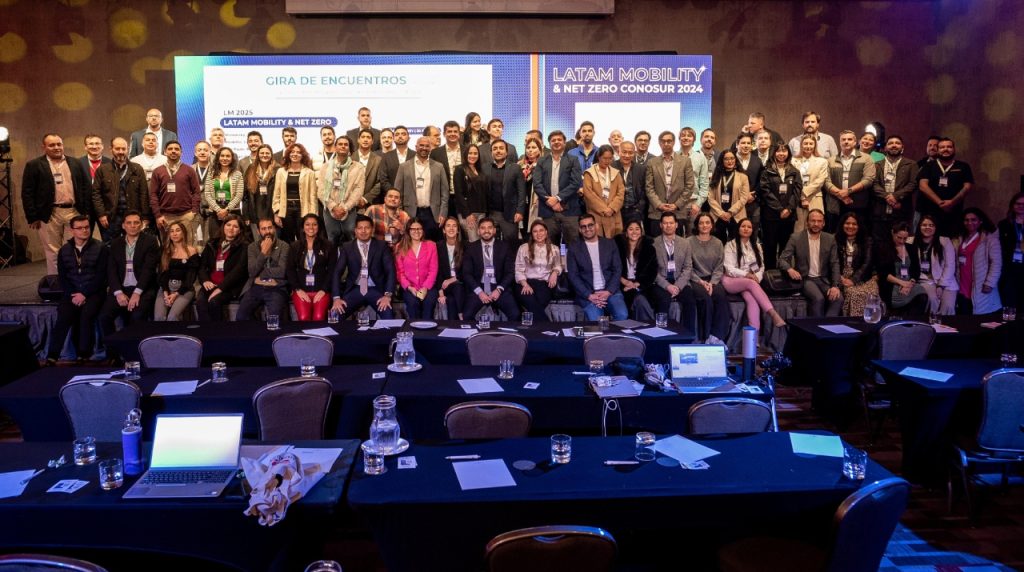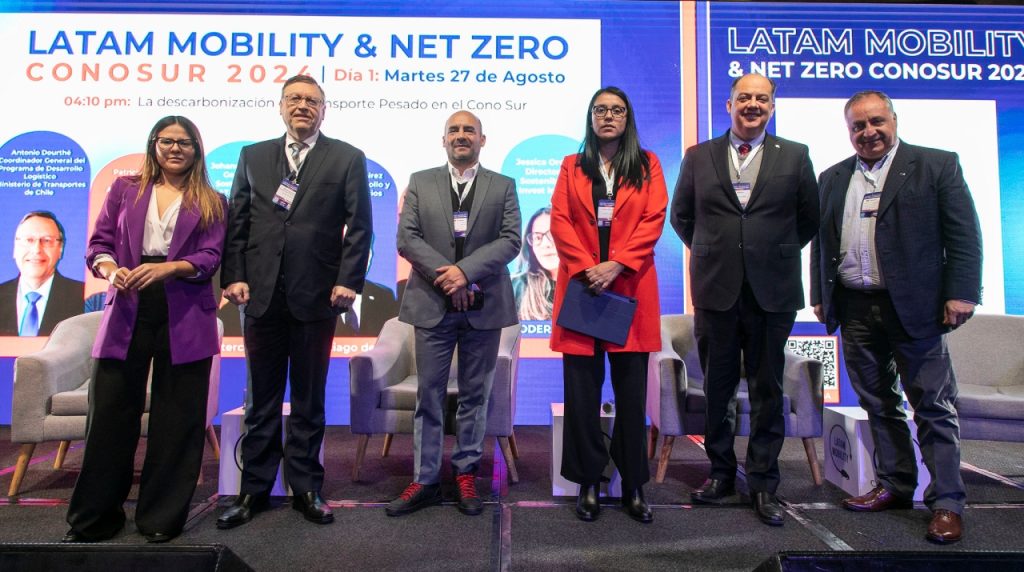On August 28, 2024, the panel titled “Decarbonization of Heavy Transport in the Southern Cone” took place, featuring leaders and experts in sustainability and logistics from the region during Latam Mobility & Net Zero: Cono Sur 2024.
This panel, moderated by Jessica Ordoñez, Director of Sustainability at Invest in Latam, brought together Antonio Dourthé, General Coordinator of the Logistics Development Program at the Ministry of Transport of Chile; Patricio Criado, Area Manager for Argentina, Chile, and Uruguay at TIBA Group; Johanna Cabrera, Sustainability Manager at LATAM Airlines; Mauricio Ramírez, Development and New Business Manager at MARVAL; and José Antonio Margalet, Commercial Director of Buses at Volvo Chile.
Decarbonization 2030
The challenge of meeting decarbonization goals by 2030 is enormous, especially in the heavy transport sector, which significantly contributes to greenhouse gas emissions.
During the panel, it was emphasized that reducing emissions in this sector is crucial to achieving global climate goals, encompassing trucks, buses, ships, and planes, all responsible for a significant percentage of carbon emissions in the region.
Antonio Dourthé, from the Ministry of Transport of Chile, highlighted the importance of a comprehensive approach that covers all modes of transport. He mentioned that the Logistics Development Program, with more than a decade of existence, has been dedicated to improving the efficiency of freight transport through various initiatives, including process digitization and the promotion of more sustainable modes of transport.

Public-Private Collaboration
One of the questions raised during the panel was the role that the public and private sectors should play in the implementation of infrastructure necessary for an effective energy transition. The panelists agreed that collaboration between both sectors is essential to overcome current challenges.
Chile has made significant progress in creating a regulatory framework that favors sustainability in transport. However, regulatory maturity is just a first step, as it is necessary to continue strengthening these policies so that small and medium-sized enterprises (SMEs) can also access financing and subsidies to adopt cleaner technologies.
Patricio Criado, from TIBA Group, emphasized the need for the private sector to quickly adapt to regulatory changes and take advantage of the opportunities offered by public policies to improve their operations. “It is crucial for the private sector to stay informed and aligned with public policies to access the benefits they offer,” he stated.
Challenges and Opportunities
Johanna Cabrera, from LATAM Airlines, spoke about the efforts the aviation industry is making to reduce its carbon footprint. She noted that, although the road is long, measures such as the adoption of sustainable aviation fuels (SAF) and route optimization to reduce fuel consumption are already being implemented.
Mauricio Ramírez, from MARVAL, highlighted the opportunities presented by maritime transport in the transition to a more sustainable future. “Maritime transport has great potential for decarbonization, especially through the adoption of technologies such as electric engines and the use of renewable energies,” Ramírez affirmed.

He also mentioned the importance of improving port infrastructure to facilitate the transition to cleaner fuels.
Finally, José Antonio Margalet, from Volvo Chile, addressed the advances in electromobility in the bus and truck sector, noting that the technology for heavy electric vehicles is already available and that its adoption largely depends on the creation of adequate charging infrastructure and government support in the form of clear incentives and regulations.
In conclusion, the panelists reached a clear consensus: the decarbonization of heavy transport in the Southern Cone is a challenge but also a unique opportunity to lead in sustainability. The transition to cleaner transport requires a coordinated effort between the public and private sectors, as well as a long-term vision involving infrastructure, the adoption of new technologies, and the development of policies that support all parties involved.




